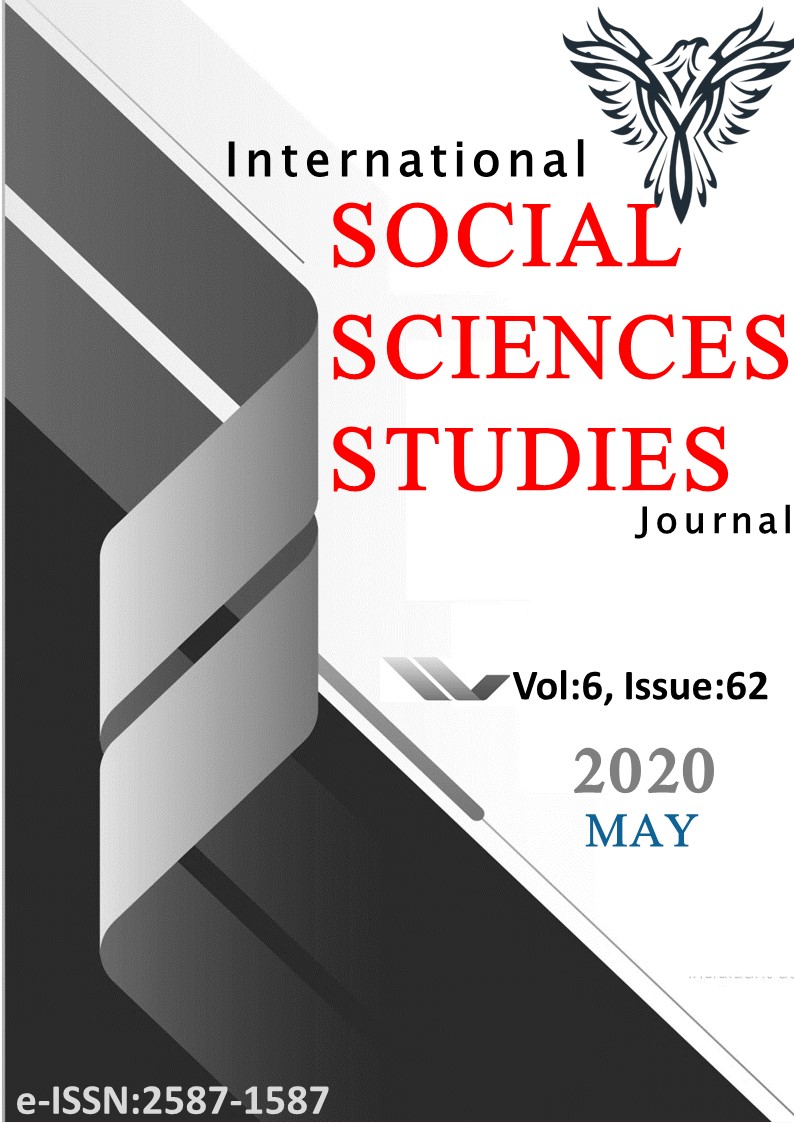Author :
Abstract
İnsanın zorunlu bir araya gelmesinden, toplumsallaşma sürecine ve sonrasından günümüze kadar geçen süre içinde, öznenin asıl sorunu doğadan ona sunulan özgürlük seçeneğini kendi iktidarına taşıyamamış olmasıdır. İktidarı ele geçiren gücün kurduğu piramidal düzen, her an kullanılmaya hazır bir kuvvet olarak sistemde tuttuğu özneye itaat etmekten başka bir şans tanımaz. Yönetici sınıf, öznenin sonlu varlık olarak ait olma sorununu kendi lehine kullanarak bunu, sonsuz varlığın gücünde, kutsiyet kavramında eriterek başarır. Fakat mevcut güç iktidarını, Tanrıya dayandırsa da varlığını ancak Rönesans’a kadar sürdürebildi, çürümüşlüğü daha fazla ileriye taşıyamadan sistem kendi kendini içten patlatarak son verdi. Bundan böyle insanın ortaya çıkmasıyla aydınlanan öznenin geleceği, “modern” kavramında koruma altında ilerleyecektir. İlk yerleşik dönemden Ortaçağa kadar devam eden statik dünya anlayışı, yerini dinamik bir dünyaya bırakacaktır, bu makas değişimi Rönesans sayesinde olmuştur, böylece aydınlanma ve bilimsel düşüncenin yolu açılabilmiştir. Bilimsel bilgi ve seküler din anlayışı üstüne kurulan Modernizm; cismin değişim değeri, artı değer yasasında elde edilen kar, gelip geçici olan değersizlik, moda, serbest rekabet ortamıyla sağlanan özgürlük, feodal sistemin tasfiyesi, kapitalist burjuva ve emekçi sınıfların doğuşu gibi yeni değişim ve dönüşümleri kontrol eden bir düzen olarak karşımıza çıkar. Pazar ve tekniğin oluşturduğu yeni toplumsal sözleşmeyle iktidarını sürdürmek isteyen modern düzen, ben olgusunu ve onun tüm yaşam alanını bir tasarım objesi gibi yönetmeyi kendisinde hak görür. Bu durumda öznenin yeni mücadele alanı, bunalımın kendisi yani modernizm ve onun iktidarı olacaktır. Göz önünde devam eden bu tarihsel süreci, kendi teknik ve ele alış biçimiyle kayıt altına alan başka bir iktidar vardır öznenin dışında, buda sanat rejimi ve uygulama alanıdır.
Keywords
Abstract
In the period which started with compulsory gathering of subjects to the process of socialization and then coming up to current time, the main problem of subject was that he could not bring naturally proposed choice of independence to his own power. The pyramidal order which was set up by the ruling power leaves no option but obeying to the subject which is kept in the system as an available force. The ruling class makes use of belonging problem of subject as a finite entity and does this by fusing in the power of infinite entity, the term of holiness. However although the current force asserts that its power is based on God, its existence could only last until Renaissance, all the corruption could not be carried further on and it ended with an inner explosion. After all the future of subject which was enlightened with the emergence of human will move forward under the protection of the term “modern” The perception of sedentary way of living which start from the first settlement period and lasted until Medieval Age will give its place to a dynamic world, this track change happened thanks to Renaissance; therefore the way for enlightenment and scientific thinking could be cleared. Modernism which was founded on scientific thinking and secular religion is an order which controls new changes and transformations such as exchange value of object, profit in law of surplus value, transient valuelessness, fashion, freedom provided in free competition market, discharge of feudal system, emergence of capitalist bourgeois and proletariat. Modernist order which wants to sustain its power with the new social contract formed by market and technique justifies itself for managing self-phenomenon and his whole living space like a design object. In this sense new arena of the subject will the depression itself which is modernism and its ruler ship. Apart from the subject, there is another power which records this ongoing historical process in its own way and technique which is called the regime of art and its practices.
